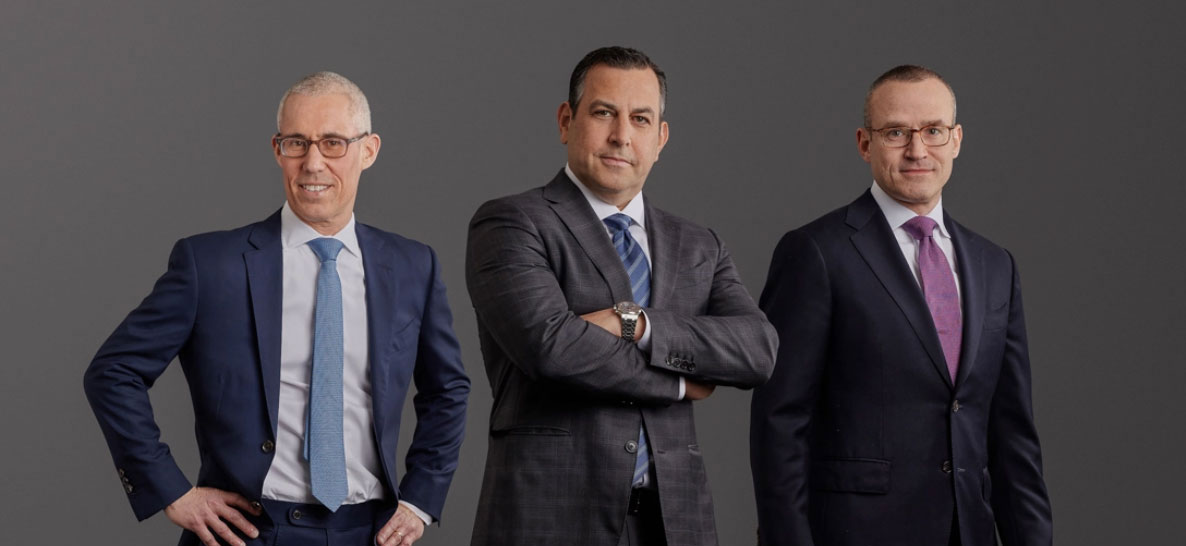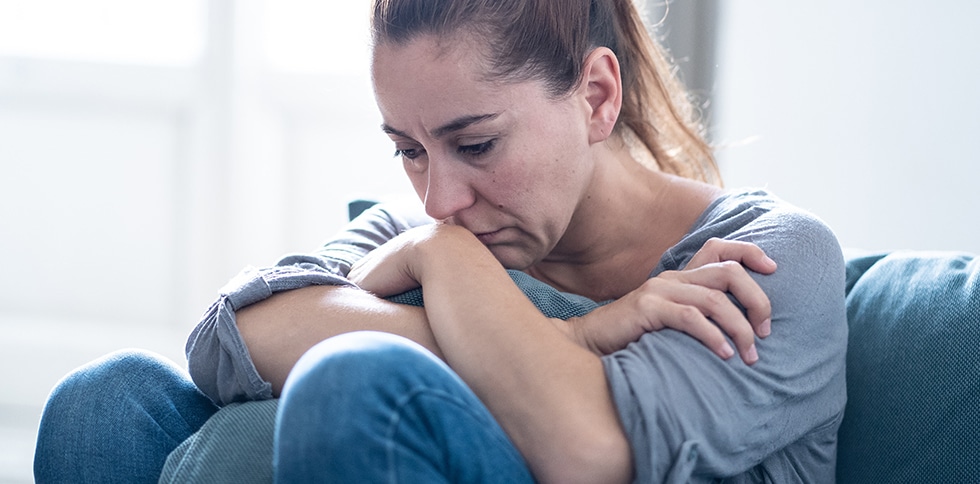
At Hecht, Kleeger & Damashek, P.C., our civil attorneys recognize the pain and turmoil survivors of sexual abuse or assault face in New York. But you are not alone. With hundreds of millions recovered, our compassionate and highly skilled legal team is here to stand by your side. We understand that seeking justice is not just about legal proceedings or getting compensation; it’s about reclaiming your life and finding a way to heal. We provide the support and advocacy you need to move on with life.
Sexual abuse is a devastating violation that leaves lasting emotional and psychological scars. Too often, survivors suffer in silence while institutions and individuals avoid accountability. At Hecht, Kleeger & Damashek, P.C., our NYC attorneys—Jordan Hecht, Jonathan Damashek, and Judd Kleeger—bring decades of experience holding abusers and negligent institutions responsible. With extensive experience advocating for survivors, we’ve helped secure substantial compensation for those who’ve endured trauma. We approach every case with empathy, discretion, and the unwavering goal of helping you reclaim your voice and pursue justice.
Over 100 5-Star Google Reviews

On This Page
Our law firm is located in Midtown Manhattan and serves clients across NYC, including Manhattan, Brooklyn, the Bronx, Queens, and Staten Island.
Tell Us What Happened
"*" indicates required fields
Sexual abuse and assault can take many forms, including unwanted touching, sexual coercion, or more severe acts such as rape. Violations can occur in a variety of settings, from personal relationships to institutional environments, and often involve a significant power imbalance that makes it difficult for victims to speak out.
The repercussions of sexual abuse can be severe and long-lasting. Many survivors struggle with feelings of shame, guilt, fear, and anxiety. They may also experience depression, post-traumatic stress disorder (PTSD), and other emotional challenges that disrupt their daily lives.
If you are feeling confused or overwhelmed, you are not alone. Many survivors face similar challenges. It is vital to know that help is available. Reach out for a free and confidential consultation to explore your legal options. Your voice matters, and HKD is here to help.
To determine if your experience qualifies as sexual abuse, consider the following:
Any sexual act performed without explicit, informed, and voluntary consent is classified as sexual abuse. Consent must be given freely and enthusiastically; any form of coercion or manipulation invalidates it.
Sexual abuse frequently occurs in situations marked by a significant power imbalance. The perpetrator may wield authority or control over the victim, making it challenging for them to resist or report the misconduct.
Sexual abuse and assault in New York can take various forms. Conduct that may rise to the level of abuse or assault includes but are not limited to:
Sex abuse can occur anywhere, but certain environments are more prone to incidents, often involving a violation of trust and authority. Recognizing these scenarios is crucial for understanding your rights and exploring potential legal action for sexual abuse. Here are some examples that may warrant a civil sexual abuse claim.


If you believe you have experienced sexual abuse in any setting, it is crucial to seek legal counsel. Hecht, Kleeger & Damashek, P.C. is here to support you in pursuing justice and accountability.
Identifying the common perpetrators of sexual abuse can help reduce risks and foster awareness. These individuals have been known to exploit their positions of authority or trust to perpetrate abuse:
This list is not meant to be exhaustive, but recognizing these behaviors is crucial in preventing abuse and holding perpetrators accountable. If you or someone you know has experienced abuse, HKD is committed to fighting for your rights and seeking accountability from anyone who abused their positions of trust.
We encourage you to research our attorneys, read our client reviews, and call 212-490-5700 for a free consultation to see why HKD is a top-rated NYC law firm serving Manhattan, Brooklyn, Queens, the Bronx, and Staten Island.
Sexual Assault & Grooming
JUMP TO SECTION“I cannot recommend Jon Damashek highly enough. I attribute the favorable outcome of my case to his consummate and tireless dedication and tenacity. Just as important, he was truly there with me every step of the way. He was very…
Start Your Case
Free Case Review | No Up-Front Costs | Pay Nothing Unless You Win | Secure The Highest Possible Reward
212-490-5700Institutionalized sexual assault occurs when abuse is enabled or overlooked within an organization, often due to a lack of oversight, accountability, or policies that prioritize the institution’s reputation over safety. This can manifest in various settings, including schools, religious institutions, and healthcare facilities, where vulnerable populations are often subjected to abuse by trusted figures.
Grooming is when a perpetrator builds a relationship with a victim to gain their trust and lower their defenses. Grooming behaviors may include:
Institutions must implement strict policies and training to prevent abuse and ensure that individuals feel safe reporting misconduct. If you believe you have been a victim of institutionalized sexual assault, it is essential to seek legal counsel.
More on Institutional Sex Abuse in New York

If you or a loved one has experienced sexual abuse or assault, it’s vital to take immediate action to ensure your safety and well-being. Below are essential steps you can take in the aftermath of a sexual assault in New York City:
Your immediate safety is the top priority. If possible, move to a location where you feel secure and away from the perpetrator. It’s common for survivors to feel shock, confusion, or a sense of denial following an assault. Take the time to calm down and ensure you are not alone, as isolation may increase your vulnerability.
Contact someone you trust, such as a family member or close friend, who can provide emotional support. Sharing your experience with someone you can confide in can be crucial in beginning the healing process. You don’t have to face this alone; support is available.
Visit a hospital or medical facility as soon as is feasible. Medical professionals can treat injuries, thoroughly examine them, and offer necessary medical care. In New York City, hospitals can perform a sexual assault forensic exam (commonly referred to as a “rape kit”), which is critical for preserving evidence. Getting medical attention promptly is essential for your health and well-being.
It’s natural to want to avoid processing the traumatic event, but confronting your feelings is vital for recovery. Consider speaking with a mental health professional, such as a therapist or counselor, who specializes in trauma and sexual assault. Support groups and counseling can provide a safe space to express your emotions and begin to heal.
At Hecht, Kleeger & Damashek, P.C., our compassionate team offers confidential, personalized legal guidance tailored to your situation, understanding the emotional and social complexities of reporting abuse. When you reach out, we’ll listen to your story, explain your legal options, and assist in preserving evidence if you decide to file a police report. With skilled legal representation, you can pursue justice and compensation.
Navigating the aftermath of sexual abuse can be overwhelming, but HKD is dedicated to guiding you and empowering you to reclaim your voice and pursue justice against your abuser.
Victims in New York can file civil lawsuits against perpetrators and potentially the institutions that failed to protect them, enabling them to seek compensation for damages such as medical expenses, therapy costs, lost wages, and emotional suffering.
Proving sexual abuse in a civil case involves various types of evidence to demonstrate the abuse likely occurred. Key elements include witness testimony, medical records, psychological evaluations, and any available documentation, such as messages, photos, or videos that support the claim. Expert testimony from mental health professionals can also illustrate the emotional impact.
Unlike criminal cases, civil cases require proof by a “preponderance of the evidence”—meaning it’s more likely than not that the abuse happened—rather than beyond a reasonable doubt. Working with an experienced attorney is essential for effectively collecting and presenting compelling evidence.
How to Build a Successful Sex Abuse Case
Liability for sexual abuse can fall on various parties, including the abuser and, in some cases, the institutions that may have enabled or overlooked the abuse. This can include schools, healthcare facilities, employers, and religious organizations that failed to implement adequate policies to protect victims or did not respond appropriately to misconduct allegations.
In a civil lawsuit for sexual abuse or assault in New York, you may be entitled to several types of damages:
In New York, victims of sexual abuse can pursue both civil claims and criminal charges, each offering unique paths to justice. Civil claims seek financial compensation with a lower burden of proof, requiring survivors to show abuse was more likely than not.
Criminal charges, pursued by the state, aim to penalize offenders through jail time but require proof beyond a reasonable doubt, which can be challenging. Many choose both routes for financial restitution and a sense of justice, making it vital to consult experienced attorneys to explore the best options based on individual needs and goals.
Laws & FAQs
JUMP TO SECTIONThese laws encompass a range of protections designed to hold perpetrators accountable while empowering victims. Knowing these laws can help you make informed decisions about your rights and how to recover from the trauma you’ve endured.
In New York, survivors of sexual abuse generally have until age 55 to file civil lawsuits. Under recent laws, the Child Victims Act (CVA) and Adult Survivors Act (ASA) temporarily opened a one-year “look-back” window, allowing claims previously time-barred to proceed. Consulting an attorney can help clarify your situation and ensure compliance with applicable timelines.
Title IX is a federal law that prohibits sex-based discrimination in educational settings. Victims of sexual abuse or harassment in schools or colleges can file complaints against institutions that inadequately address misconduct, leading to potential accountability and compensation for survivors.
The Adult Survivors Act, enacted on May 24, 2022, allowed individuals aged 18 and older who experienced sexual assault to file civil lawsuits regardless of when the abuse occurred. Although the application window has closed, the ASA was pivotal in empowering survivors who previously felt unable to seek justice due to trauma or stigma.
The Child Victims Act encourages survivors of child sexual abuse to pursue legal action against their abusers and liable institutions. While the one-year “look-back” window expired on August 14, 2021, the CVA permanently extends the statute of limitations, allowing civil lawsuits until age 55 and criminal charges until age 28.
The NYC Gender-Motivated Violence Act provides critical protections for victims of gender-based violence, including sexual abuse. It allows survivors to file civil claims for damages motivated by their gender, facilitating recovery of both compensatory and punitive damages and enhancing accountability.
New York’s laws against human trafficking address the exploitation of individuals for commercial sexual purposes. Victims can file civil lawsuits against traffickers and benefiting entities, ensuring pathways to recovery for the physical and psychological harm suffered and holding accountable those who facilitate or profit from these acts.
To file a sexual abuse claim, consult a sexual abuse attorney to evaluate your case. They will guide you through the process, help gather evidence, and ensure your claim is submitted within the statute of limitations.
Victims may seek compensatory damages for medical expenses, therapy costs, lost wages, and non-economic damages for pain and suffering. In some cases, punitive damages may also be awarded.
If the institution failed to protect you or adequately respond to allegations, you may have grounds for a civil lawsuit against them.
Reporting sexual assault to appropriate authorities, such as law enforcement or helplines, can initiate essential investigations and hold offenders accountable. While reporting the incident before filing a civil claim is not mandatory, it can help gather evidence and strengthen your case. Mental health professionals, counselors, and victim advocates are also available to provide the support and guidance necessary for recovery. It is advisable to consult a lawyer to understand your options and the best steps.
Survivors have the right to take legal action, seek compensation, and receive victim advocacy services. Legal representation can help navigate the complexities of these rights.
Yes, there are various resources, including mental health professionals, support groups, and victim advocacy organizations that can assist you in this challenging time. Your attorney can also provide guidance on available resources.
If you or a loved one has experienced sexual abuse, it’s time to take a stand. The decision to work with a lawyer can feel overwhelming, and you may just want the situation to go away. However, taking legal action is crucial for several reasons:
At Hecht, Kleeger & Damashek, P.C., we are passionate about fighting for sexual abuse survivors. With over $825 million recovered, we have earned a reputation as fierce advocates in New York City. Our dedicated team understands the emotional toll of your experience and is committed to standing by your side.
If you or a loved one has experienced sexual abuse in NY, call (212) 981-2887 or fill out our online form for a free, confidential consultation. You only pay us if we win your case so that you can focus on healing without financial worries.